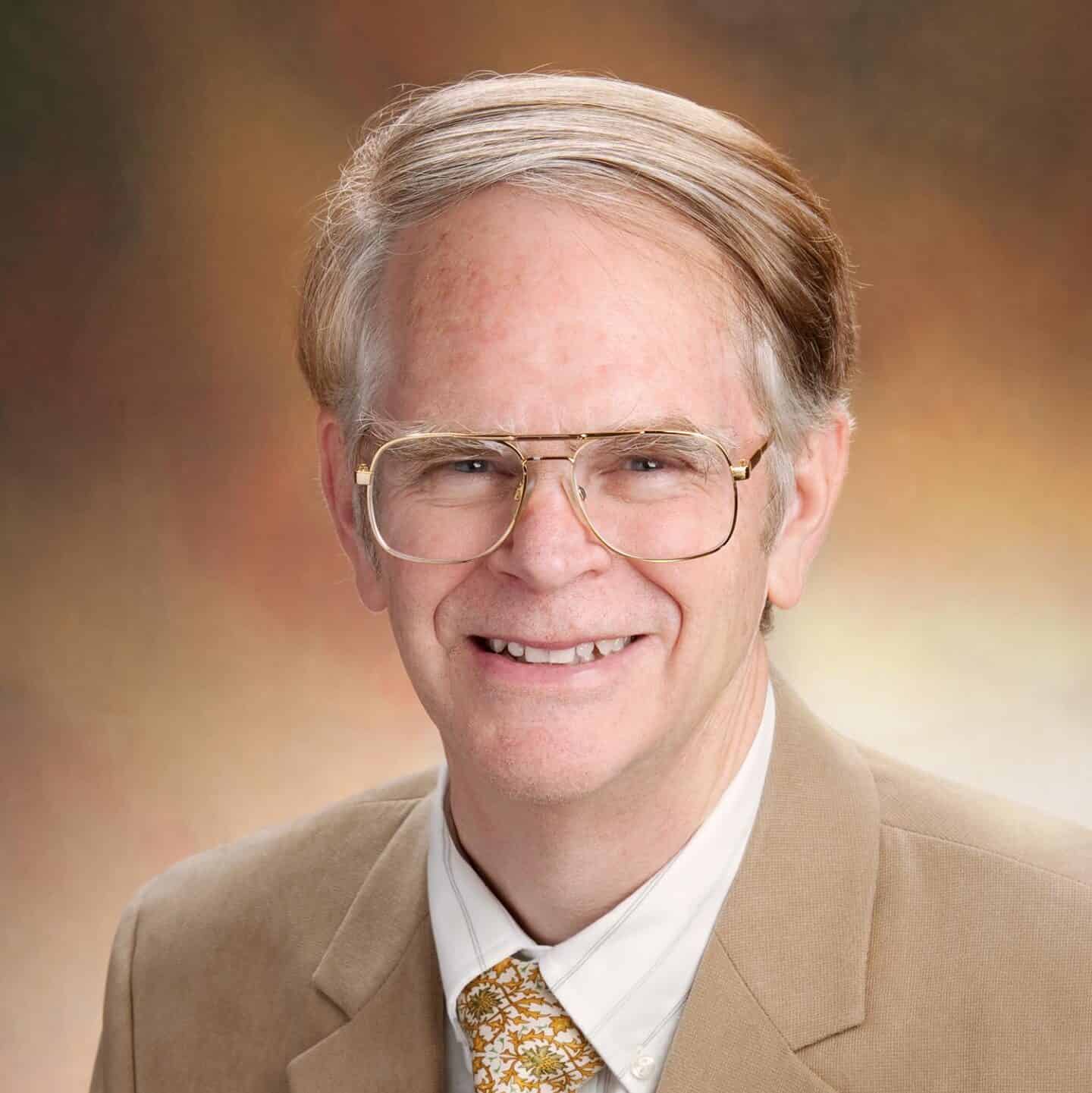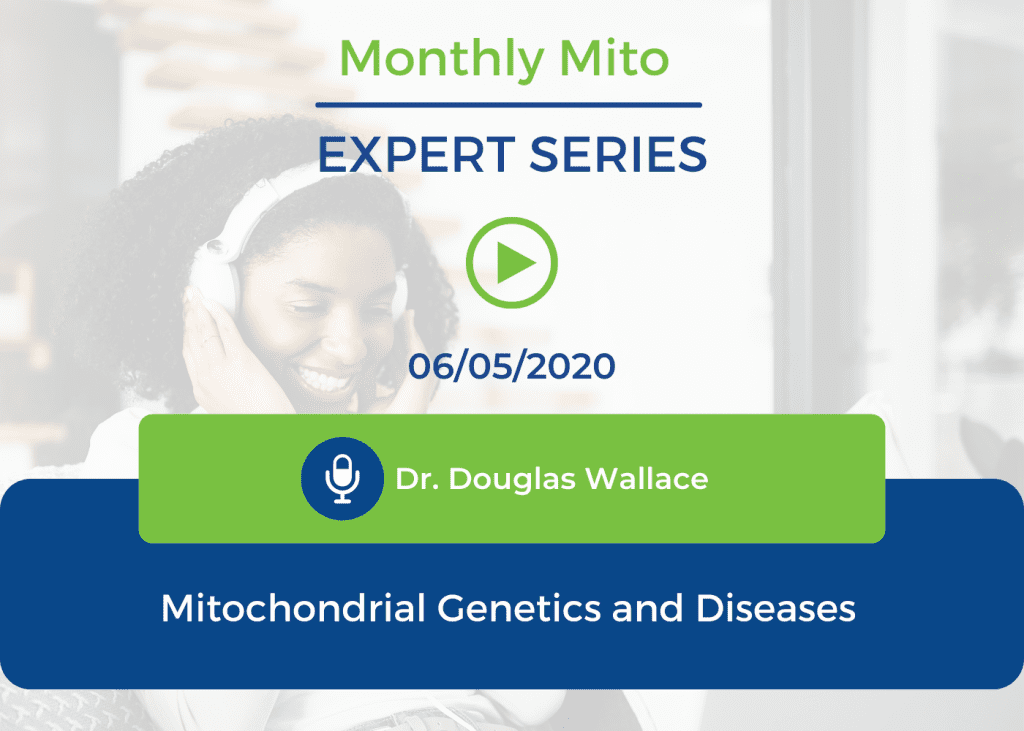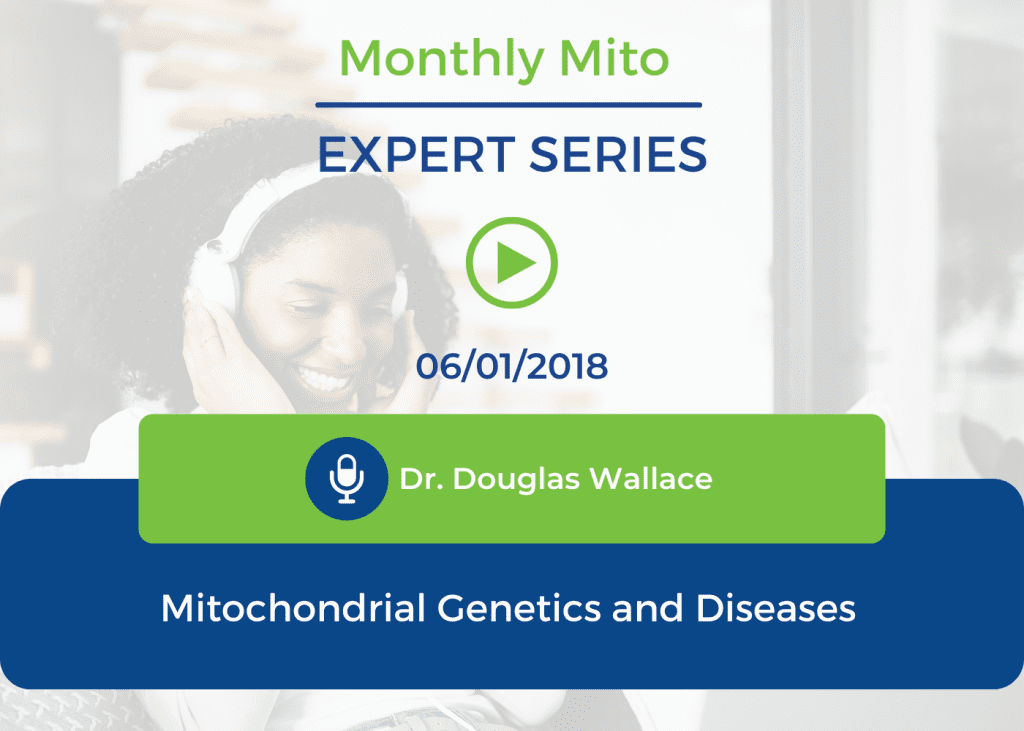
Douglas C. Wallace founded the field of human mitochondrial DNA (mtDNA) genetics and demonstrated that mtDNA variation has profound implications for human health and disease, the origins and ancient migrations of our ancestors, human and animal adaptation, and perhaps the origin of species. Starting in the early 1970s, he demonstrated that the mtDNA codes for inherited traits by developing the transmitochondral cybrid system and demonstrating that mixtures of mutant and normal mtDNAs (heteroplasmy) affect cellular phenotypes through exceeding quantitative energetic thresholds. In family studies, he showed that the human mtDNA is exclusively maternally inherited, that the mtDNA sequence is highly polymorphic, and that mtDNA variation correlates with the geographic origins of indigenous peoples. Concurrently, he helped define the genes and proteins coded by the mtDNA and demonstrate their essential role in mitochondrial energy production. From this foundation, he was the first to identify inherited mtDNA mutations that result in disease, initially the mtDNA missense mutation that causes Leber Hereditary Optic Neuropathy (LHON) and the protein synthesis mutation that causes Myoclonic Epilepsy and Ragged Red Fiber (MERRF) disease. Since then he has identified multiple pathogenic mtDNA mutations causing diseases as diverse as diabetes, cardiovascular disease, and Alzheimer disease. Currently, his web-based mtDNA information service, MITOMAP, now lists hundreds of clinically relevant mtDNA mutations. Wallace also showed that the accumulation of mtDNA mutations in tissues correlates with aging and age-related diseases. Pursuing his discovery that different continental populations have different groups of mtDNA variants, Wallace spent 20 years surveying the mtDNA variation from populations around the world. By correlating mtDNA sequence differences between populations with their geographic locations, Wallace was able to reconstruct the origin and radiation of women and thus of Homo sapiens sapiens. This revealed that humans arose in Africa about 200,000 years ago, that only two mtDNAs successfully left Africa to colonize Eurasia and the Americas, and that functional mtDNA variants arose as humans moved into a new environments. This led Wallace to propose that mtDNA variation which modifies energy metabolism is a major factor in permitting humans and other animals to adapt to new environments. Since the mtDNA trees of the species studied coalesce back to a single mtDNA, Wallace has proposed that mtDNA variation may be the factor that permits subspecies to occupy marginal environments as a precursor to speciation. Wallace was also among the first to clone nuclear DNA-coded mitochondrial genes, to show their relevance to disease, and to demonstrate that variants in nDNA and mtDNA genes could interact to markedly affect and individual’s phenotype. He also demonstrated that regional mtDNAs when moved to new environments can predispose to a wide range of complex diseases. Wallace was the first to develop mouse models of mitochondrial disease and to invent a procedure for introducing mtDNA mutations into the mouse female germline. This revealed that single mtDNA base changes were sufficient to produce the common metabolic and degenerative disease phenotypes. Thus, Wallace has provided compelling evidence that mtDNA variation is central to health and the common diseases.
Awards and Honors – In recognition of his seminal contributions to human and mammalian genetics, Wallace was elected to membership in the National Academy of Science in 1995, the American Academy of Arts and Sciences in 2004, and the National Academy of Medicine in 2009. Wallace was awarded the William Allan Award by the American Society of Human Genetics in 1994, the Passano Award for Mitochondrial Genetics (with G. Attardi) in 2000, the Metropolitan Life Foundation Award for Medical Research in Alzheimer’s Disease also in 2000, and the Pasarow Award for cardiovascular disease in 2006. In 2012, he received the Gruber Genetics Prize, the world’s highest genetics honor, as well as the American College of Physicians Award for “Outstanding Work in Science as Related to Medicine.” In 2015, he was awarded Doctor Honoris Causa, Universitè Angers, France and was elected to the Accademia Nazionale delle Scienze detta dei XL (National Academy of Sciences of Italy). In May of 2017, he received the Franklin Institute’s prestigious Benjamin Franklin Medal for the Life Sciences “For demonstrating the maternal inheritance of mitochondrial DNA (mtDNA) in humans, using mtDNA variation to reconstruct ancient human migrations, identifying the first mtDNA mutation associated with an inherited disease, and showing that mutant mtDNA can profoundly affect the nuclear genome, causing complex diseases, thereby leading the way to therapies for those diseases and the aging process.” On June 20, 2017, it was announced that “The 2017 Paul Janssen Award for Biomedical Research is awarded to Dr. Douglas Wallace for pioneering the field of mitochondrial genetics and its application to the study of disease, aging, and patterns of human migration.”












